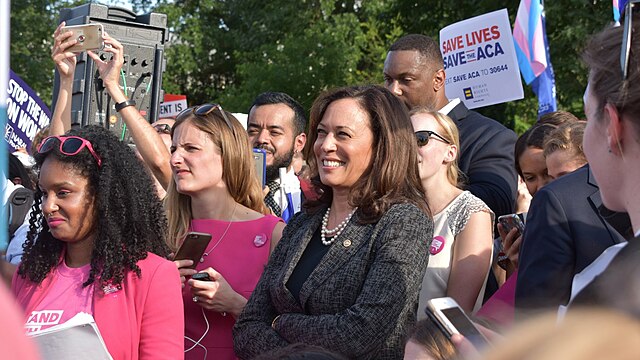To the Editor,
Thank you for writing last week’s staff editorial as a collective at The Guilfordian. It encouraged me to keep speaking out, which I have had a hard time doing. However, I would like to say, in holding Judicial Affairs accountable in issues of sexual assault, my reporting process recognized what happened to me, but I was left with sanctions that continue to remind me that “this happened to you, but since we cannot find any evidence in what you’re saying, he stays.”
What I wish my perpetrator knew comes from Safe Horizon, a website for justice for domestic and sexual violence, which states that sexual assault includes being prevented from using a condom or other protection during sex. When he made this decision for me, I was too drunk to understand what was happening to me before it happened. That counts as something.
Not being unable to or feeling unsafe to speak up also counts. Students, consent to sex is not a catch-all.
To the editor: Not only will I continue to be transparent for my College, but if I can talk about this “uncomfortable” conversation right down to what I just stated, then the campus can too. I deserve better, and you have no idea how horribly uncomfortable this has been for me.
Further, the sanctions imposed on my perpetrator are only an inconvenience to him, and that’s all they will ever be.
To my perpetrator: The issue of the paper containing the editorial I am writing a response to sports a picture of our football team on the cover, while The Guilfordian recognizes the problem of sexual assault in the inner pages.
You get the privilege of learning about what you did as something that was wrong, at my expense. It doesn’t matter that you didn’t know, because you didn’t listen to me. When I tried to tell you, I was not only vulnerable, but you banked on my vulnerability. You recorded a conversation we had in my room without me knowing, and you used that during the reporting process, which definitely discredited what I was telling my college and further silenced me from telling Guilford outright, “Hey. This is wrong.”
Before I realized what had happened to me, not only was I vulnerable and unable to communicate that to my college, I had to suffer through a process that continues for me after the closure of my case. All the things I wrote to my college will be on file for seven real years, while you have seven points on your record that diminish by two points after this full academic year if you don’t do anything else wrong.
By silencing me and telling me “it was fine” while I tried to tell you that both instances were not, I not only never got to tell you what was wrong, I was silenced even further.
I’m glad that was on the audio recording. You know, the part where I told you that it “wasn’t fine.”
You were found responsible for non-consensual contact, on the same level as groping.
You didn’t grope me, but at least my college has solid proof of me saying that at least that assault was not okay.
To the editor: It is important to make sexual assault prevention inclusive because what occurred to me was rape, and I am slowly getting better by having a support system with friends.
What does that mean for someone who is not heterosexual?
What does the perfect victim look like?
Not only is this a conversation we need to be having, but, Guilford College, hookups can go wrong. I will not stand for another person going through this process without some form of effective justice. I cannot count on my state to give me justice at this point, nor had I wanted, or want it to now.
I depend on you, Guilford.
We live in a culture that teaches assaulters about consent after they’ve f—ed up. In every way possible, assaulters are protected by the educational agenda of school systems, private and public. So, no, Guilford is not excluded from this issue.
There isn’t even a definition of consent in judicial law in the state of North Carolina. I am literally unrecognizable by the law of the state I live in. The feeling of having nowhere to turn is not a feeling I think anyone wants to have. All I have are these experiences.
Sexual assault is a huge problem because we have perpetrators getting away with what they do because “they do not understand.” If you really truly do not, we as a College are also to be held accountable to change that.
You are still responsible if you assault someone, though.
Also, students have been and will be suspended for raping someone, but once the person they victimized graduates, they will likely get a chance of re-entry to the College if they reapply after a certain time. That’s also a problem. Because sexual misconduct records are not transferrable to colleges, further protection (or lack thereof, if we’re really thinking about it) give perpetrators more of an escape from anyone ever knowing what they did.
That is not a Guilford problem. This is reality within our developing system of laws regulating how sexual assaults are to be handled within the higher education system. There is no requirement to alert another college about assaults. Assaulters are, in every way, protected by their higher education.
I also will not stand for more s— to go down on this campus without utilizing our capacity as a campus community to actively prevent and utilize funds for better prevention programs, including gathering all members of the community, involving athletes, staff, faculty, coaches and students as well as assessing the budget as it applies to sexual assault prevention.
To my perpetrator: You are lucky you are protected by Guilford and the football team. You thought you would be kicked out, but you were not. You told me that I “had balls” to report, and I think that says something in itself. Because I would like to say I have one hell of a backbone, and you really took advantage of my own compassion by recording that conversation and framing me for my assaults.
That’s what I want you to know, and I want you to know I forgive you.
I have a brother, and you have a sister.
To the Judicial System at Guilford: How should I have described what happened to me? Which policies should be reassessed first?
It sucks that what happened to me was only labelled as non-consensual contact, on the same level as groping, because I feel so much more than that. What occurred was so much more than that.
To the Editor: You cannot prevent rape. Meaning, there are ways to actively prevent it on campus, such as with POMCO, a safety device students can buy, or with newly required bystander intervention training.
However, I could not prevent what happened to me, and this isn’t my fault.
If people know what is going on and what sexual assault and rape are, that is a start. Our college has great definitions of affirmative consent, which circumvents any of the horribly outdated laws found in the state of North Carolina. “My Masculinity Helps,” a video my perpetrator will have to watch, defines rape. It defines what happened to me as rape, so it really doesn’t feel all that great having an outcome so minimized. “My Masculinity Helps” is free, while supplies last, through the North Carolina Coalition Against Sexual Assault.
What happened to me was not likely to be recognized by our state laws, while at the same time it was recognizable by federally funded rape prevention program resources and was recognized, but not against any specific policies in our student handbook at Guilford. Unless we’re defining rape narrowly at Guilford — which we are, and so I was just “groped.”
I encourage every student to do their part in any way they can, such as calling out your male friends who say things like “she’s crazy” or “a b—-” or “a slut.” Call out the misuse of personal pronouns too, and take care of each other at parties. If you see someone leave with another person, step in and be uncomfortable.
I will not stand for more s— going down in this campus without utilizing our capacity as a campus community to actively prevent it, utilizing funds for better prevention programs. We need to gather all members of the community, involve athletes, staff, faculty, coaches and students as well as assess the budget as it applies to sexual assault prevention.





